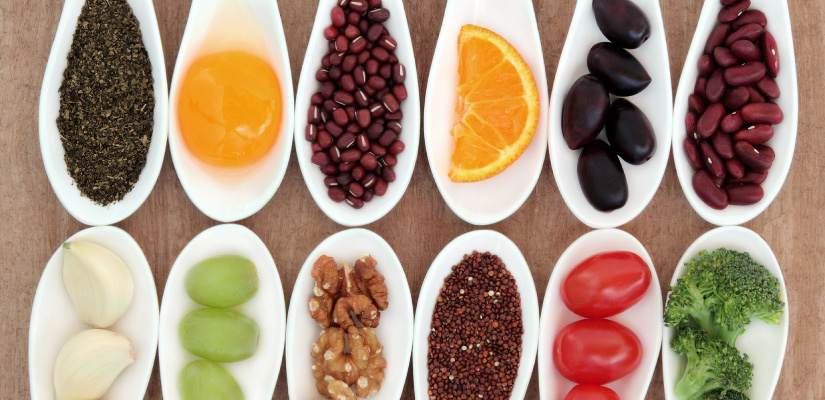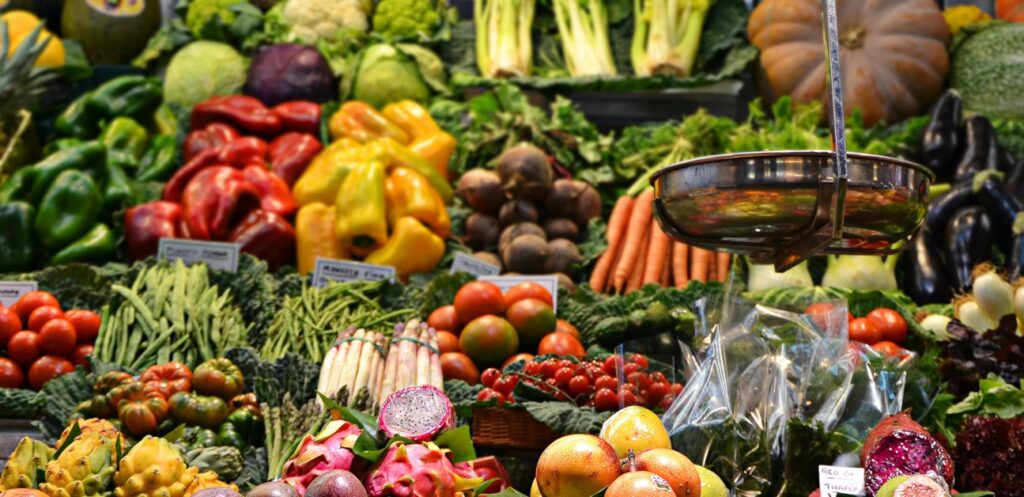Timing Nutrition with Training

This article is part 2 of 3 in a series focused on maximizing your training. Check out the next article here.
When it comes to endurance sports nutrition, it can all essentially be broken down into two categories: what to eat and when to eat. While most athletes, coaches, and dietitians focus on the what, in this blog we’ll focus on the much less discussed when, which is equally important.
An Ideal Training Day
In past blogs on weight loss and marginal gains, I’ve discussed an ideal training/fueling routine which involves eating a big breakfast 2-3 hours before a morning workout. The majority of calories are taken in during the first half of the day, as lunch and dinner are light and meant to simply keep nutrients in the body and prevent hunger. Carbs are utilized early in the day to supplement your workout, but are limited as the day goes on. Lastly, each day is finished with 3 hours of fasting before bed.
This schedule simply does not work for most athletes due to their other obligations throughout the day, but the principles behind it are key to understanding nutritional timing in order to improve your own routine. Let’s take a deeper look:
Fuel adequately for workouts and maximize digestion.
You never want to go into a workout hungry, but you also don’t want to go into one with a full stomach. You want to avoid foods high in insoluble fiber before workouts, like raw vegetables, raw nuts, and certain types of fruit like oranges due to their difficulty to digest. By eating a regular meal, rich in complex carbs and healthy fats 2-3 hours before getting on the bike, the body has time to turn that food into fuel. This way, you start your ride with an empty stomach and muscles filled with glycogen.
Metabolism is most efficient in the morning.
As the day goes on, metabolism naturally slows, reaching it’s lowest rate late in the evening just before you go to bed. With this, calories consumed earlier in the day will be utilized more efficiently to provide fuel to muscles and nutrients to aid in recovery. Excess calories consumed later in the day have a much higher probability of being stored as fat, rather than burned for fuel.
Going to bed on a full stomach hinders recovery.
While you don’t want to go to bed hungry, you don’t want to go to sleep with a full stomach. While you sleep, the endocrine system rebalances and secretes hormones like HGH which are incredibly important for recovery and the maintenance of a healthy and efficient metabolism. However, this process is hindered when the stomach is full, especially in the presence of excess carbohydrates.
Utilize carbohydrates to supplement workouts.
I like to treat carbs as a “supplement” for workouts, while limiting them in day-to-day life outside of training. Carbs provide fast energy and are key to recovery. Consume complex carbs before a workout like whole grains; simple carbs (sugar) every hour during (if a multi-hour workout); and add simple carbs to your recovery drink in a 2:1 ratio of carbs to protein. Remember, protein needs simple carbs in order to be efficiently taken into muscle cells and utilized for recovery.
Simulate your race day routine on hard workout days.
If your races typically start at 8 a.m. it’s best to start your big workouts at 8 a.m. as well. Follow your race day routine to a T, mimicking everything from the contents of your favorite race day breakfast, to the duration of time (ideally 2-3 hours) you like to eat before the start gun goes off. By doing this, your race day routine becomes second nature which helps prevent nerves and surprise problems when your big event comes.
Finding a Balance
Training for endurance sports is all about finding a balance that works for you and your life. Most athletes will not be able to follow the above principles perfectly and that’s okay. The important thing is to be conscious of them and use this knowledge to make little adjustments in your daily routine to get the most out of your training.
Below are some of the most common situations I hear from athletes, and my suggestions on how to remedy them:
I only have time to train early in the morning, around 5 a.m. Should I get up at 3 a.m. in order to eat a big breakfast before my workout?
If this was a big race, like an Ironman we were talking about here, I would say absolutely! However, in this case, the trade-off for a big meal eaten 2-3 hours before your workout is a pretty drastic alteration in your sleeping schedule, which will hurt your performance a lot more than the extra fuel and digestion time will help. The key here is to utilize simple carbs in the most digestible form possible to prevent any GI stress. A good example is 2 gels, a ripe banana (if it’s still green, it will be more difficult to digest), and a cup of coffee, 30 minutes before you get on the bike. This will provide very quick fuel with limited sustenance to upset your stomach once you start riding.
You will want to keep these early morning workouts around 60-90 minutes due to the lack of “real” calories. You will also want to make sure you keep up on your calories throughout the rest of the day, as simple carbs + high intensity intervals early in the morning will have your metabolism burning very quickly.
I get off work at 6 p.m. and ride at 7 p.m. Afterwards I’m starving, but don’t want to wait until midnight to go to bed in order to get the 3 hours of fasting in.
The 3 hours of fasting before bed is a rough estimate of the time necessary to mostly digest a full-size dinner in the evening. The biggest thing to remember here is that you just don’t want to go to bed feeling “stuffed.”
In this case, I would recommend taking a full meal with you to work and eating it around 5 p.m. if possible. The meal should be high in complex carbs and low in things that are hard to digest like insoluble fiber (i.e. raw veggies). Then when you get home, you should be adequately fueled and ready to go.
After the ride, have a recovery drink with a 2:1 simple carbs to protein ratio. Give this at least 20 minutes to start entering the bloodstream and refueling hungry muscles and then reassess your hunger. Many times, the recovery drink can be enough to keep you feeling satisfied until you go to bed. If it’s not, it’s completely okay to eat, even if you’re planning on retiring for the night in an hour.
When it comes to eating this late, try to limit simple carbs as well as foods that will be difficult to digest. Things like scrambled eggs, soup, even granola are good snacks at this time. You don’t want to eat until you’re stuffed, but it’s important that you don’t go to sleep starving, because the body will not have the nutrients necessary to continue recovering from your workout through the night.
I’m trying to lose weight, so I’ve just been drinking water in the morning before my workout, and then I use a sugar-free recovery drink.
This is a recipe for disaster for competitive athletes. It’s true, working out with zero calories in you will force your body to lose weight. However, it will also prevent you from getting stronger on your bike, drastically increase your risk of burn out, and eventually lead the body to enter “starvation mode” where every calorie that is consumed is then stored as fat.
Further, your recovery drink and your on-the-bike fuel should never contain the words “sugar-free.” Training time is not the time to limit calories. Further, protein needs the presence of simple carbs in order to quickly and efficiently make it’s way into the muscle cells after a hard workout.
Remember, there is no universal solution for nutrition. It’s all about fine tuning your food with your life in order to find the best recipe for you and your unique schedule. If you have questions, please leave them in the comments below and I’ll be happy to provide my feedback.
This article is part 2 of 3 in a series focused on maximizing your training. Check out the next article here.
